Privacy Policy | Terms and Conditions | Disclosure Statement | License Policy
COPYRIGHT © 2024 | NUMBER 8 COOKING | ALL RIGHTS RESERVED.

Privacy Policy | Terms and Conditions | Disclosure Statement | License Policy
COPYRIGHT © 2024 | NUMBER 8 COOKING | ALL RIGHTS RESERVED.

Privacy Policy | Terms and Conditions | Disclosure Statement | License Policy
COPYRIGHT © 2024 | NUMBER 8 COOKING | ALL RIGHTS RESERVED.
Learning how to be a better cook and cooking delicious, satisfying meals at home is a skill many aspire to. However, knowing where to start when leveling up your culinary abilities can be intimidating for a beginner. From proper seasoning techniques to fundamental cooking methods, many components go into becoming a confident, capable home cook.
That’s why I’ve written this beginner’s guide detailing 12 core skills that will help equip you with the knowledge needed to succeed in the kitchen. Also, read to the end, where I share one piece of advice I wish I had followed when I first started cooking professionally.
We’ll cover essential topics such as starting with simple recipes and reading them before you begin, heat control, the dangers of overcrowding a pan and learning about cooking methods. With helpful pointers on knife skills, seasoning layers, and other cooking fundamentals, no beginner should go without.
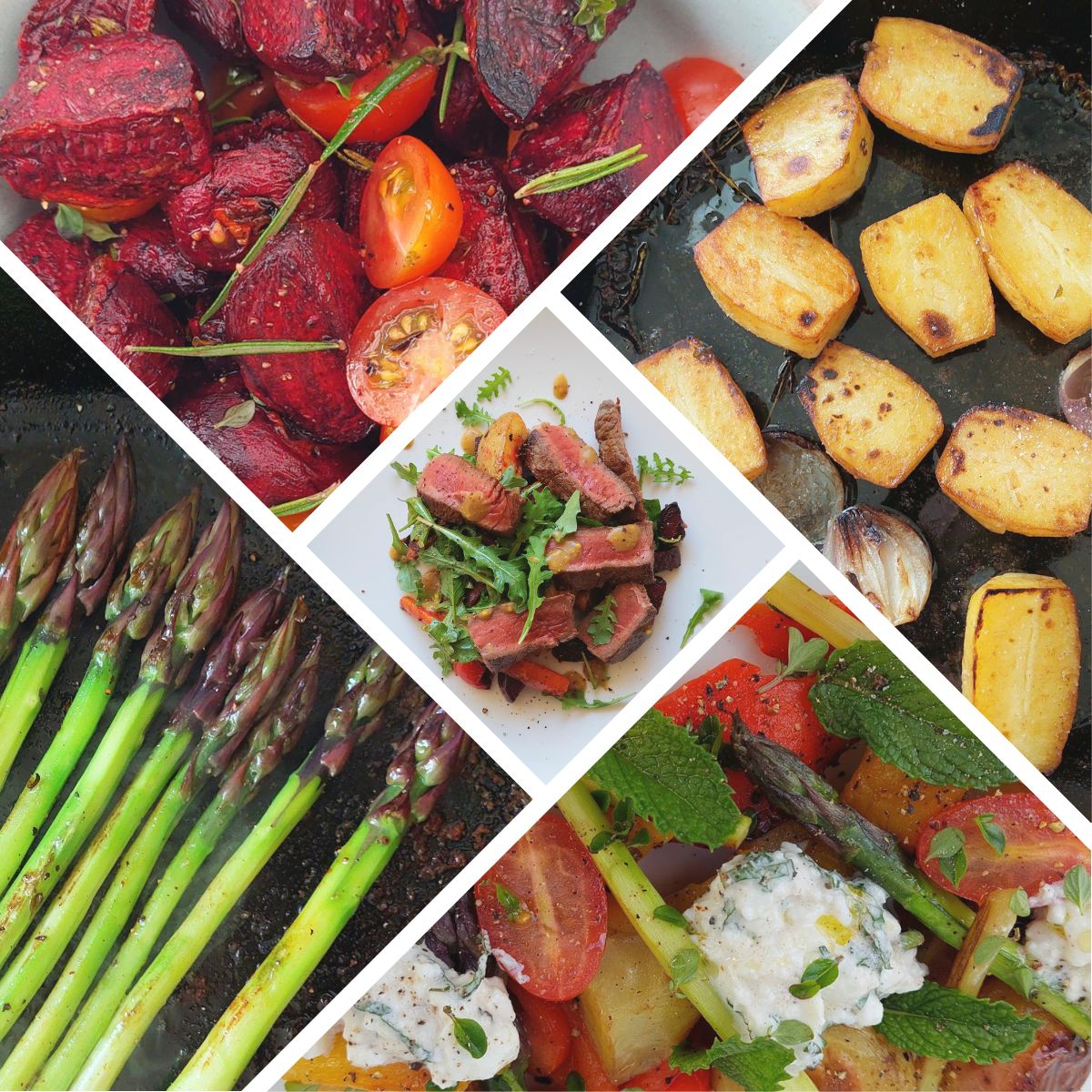
We’re helping you to become a more confident, capable home cook. Follow the practical step-by-step advice to take your culinary abilities to the next level, regardless of your experience. By the end, you’ll understand what skills you’ll need to craft flavorful dishes that your family and friends will love.
When beginning to learn how to cook starting with simple recipes is laying the foundation for a culinary journey. As qualified chef, I understand the importance of building confidence in the kitchen. Choose recipes that don’t overwhelm you with a long list of ingredients or intricate steps. Begin with the basics, such as cooked and raw salads, stir-fries, or one-pot dishes.
Simplicity is the key here. Simple recipes allow you to focus on fundamental cooking techniques, like chopping, sautéing, and boiling, without feeling rushed or stressed. For instance, a basic roasted pumpkin salad with a homemade dressing is an excellent starting point. It introduces you to roasting, balancing flavors, and carefully handling ingredients.
How to be a better cook — Start by following the recipes diligently, paying attention to details like measurements and cooking times. The beauty of simplicity lies in its ability to create a strong foundation for more complex dishes. By mastering the basics, you better understand ingredient combinations and cooking times.
Before you start any recipe, make sure you read it thoroughly. It’s like mapping the journey before setting out on a road trip. You wouldn’t want to realize you left something crucial behind when you’re halfway there. So, with a recipe, take a moment to familiarize yourself with the steps and ingredients.
Equally important is making sure you have all the necessary ingredients and equipment. There’s nothing worse than realizing mid-cook that an important component needs to be included. Meticulously review the ingredient list, checking your pantry and fridge to ensure everything is there. This saves time during the cooking process and prevents a frantic last-minute dash to the grocery store.
How to be a better cook — Decades ago when I first started cooking I would pull recipes apart and understand how they were created. When I read through the recipe, I would pay attention to any specific techniques or terms I might not be familiar with. This proactive approach allowed me to look up anything I didn’t understand beforehand.
Mastering knife skills has been nothing short of a game-changer for me. As a professional chef speed is key to powering through mountains of prep work. Learning to chop, dice, and slice precisely saves time and makes you a better all-round cook.
Practice has been my faithful companion in this endeavor. Regularly honing my knife skills has not only increased my speed but also my confidence in the kitchen. It’s like a culinary dance, where the knife becomes an extension of my creativity, allowing me to express myself through the ingredients.
How to be a better cook — Don’t avoid the cutting board and the chef’s blade. Embrace the journey of mastering knife skills. This is a fundamental step in transforming how you approach cooking. With each precise cut, you’ll feel a sense of accomplishment, knowing that you’re not just cooking but crafting a culinary masterpiece.
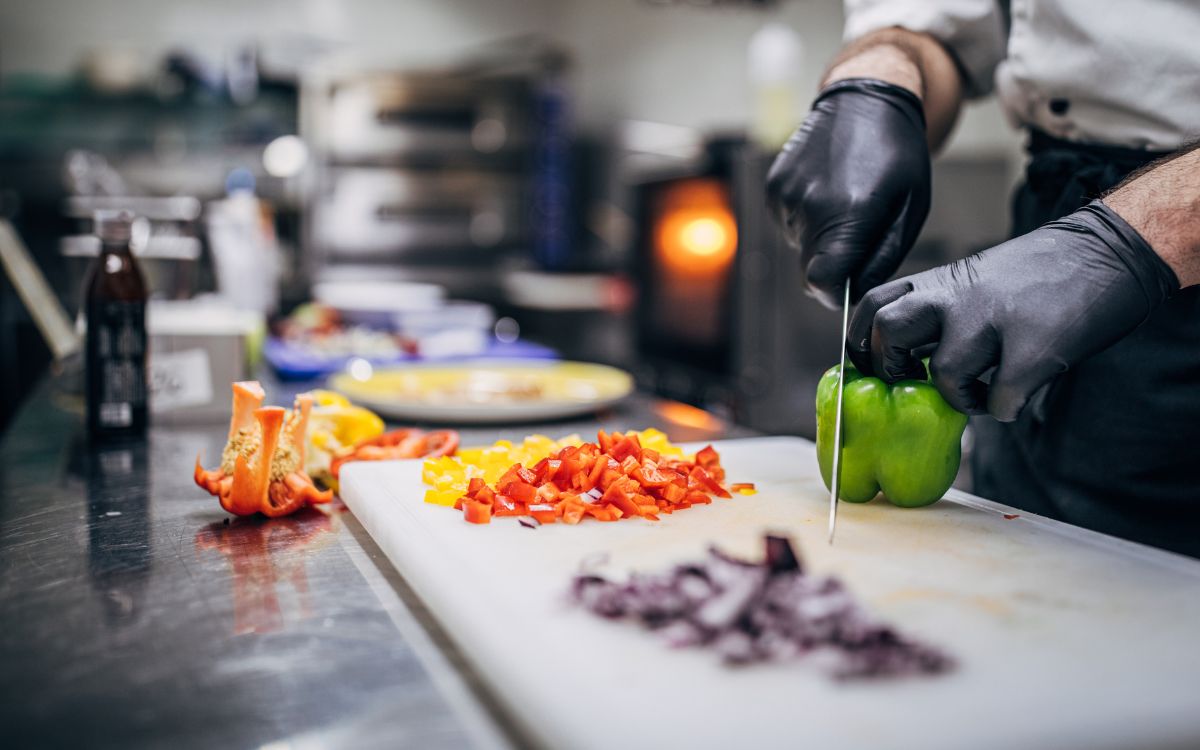
In the world of cooking, flavors, and proper seasoning are the conductors that bring harmony and life to dishes. It’s not just about sprinkling salt and pepper; it’s an art that transforms ordinary meals into extraordinary culinary experiences. Learning how to season food has been a journey of discovery for me. Herbs, spices, the powder of acid — vinegar, citrus, and wine. They all contribute to the final outcome.
The key to proper seasoning is tasting as you go. I’ve learned to trust my palate, adjusting salt, pepper, and spices gradually. It’s a sensory journey where I let the flavors unfold and evolve with each addition. It’s not just about following a recipe; it’s about understanding the personality of each herb, spice, and salt varieties. I allow my experience and senses to guide me in creating layers of flavor.
How to be a better cook — Seasoning is not a one-size-fits-all affair. Different cuisines, ingredients, and personal preferences play a role in this culinary magic. It’s a journey of exploration and self-expression, where I’ve learned to be bold with flavors and mindful of subtleties.
The right cookware is not just about having a pot or pan but selecting the perfect equipment. First and foremost, you need to understand the different types of cookware. I reach for my trusty stainless-steel saucepan when whipping up a delicate sauce or simmering a flavorful stock. Its design allows for precise temperature control, ensuring that my sauces come out silky.
My go-to is the versatile cast-iron skillet for heartier dishes requiring a slow, gentle braise or an intense sear that locks in juices. Its ability to hold and evenly distribute heat makes it essential for searing steaks. Then there’s the non-stick pan, a superhero for effortlessly flipping pancakes or sautéing delicate fish fillets.
How to be a better cook — It’s not just about having the right tool; it’s about using it intentionally. The right cookware enhances the cooking process, bringing out the best in each ingredient. Cooking is all about respecting the ingredients and their journey from the pantry to the plate.
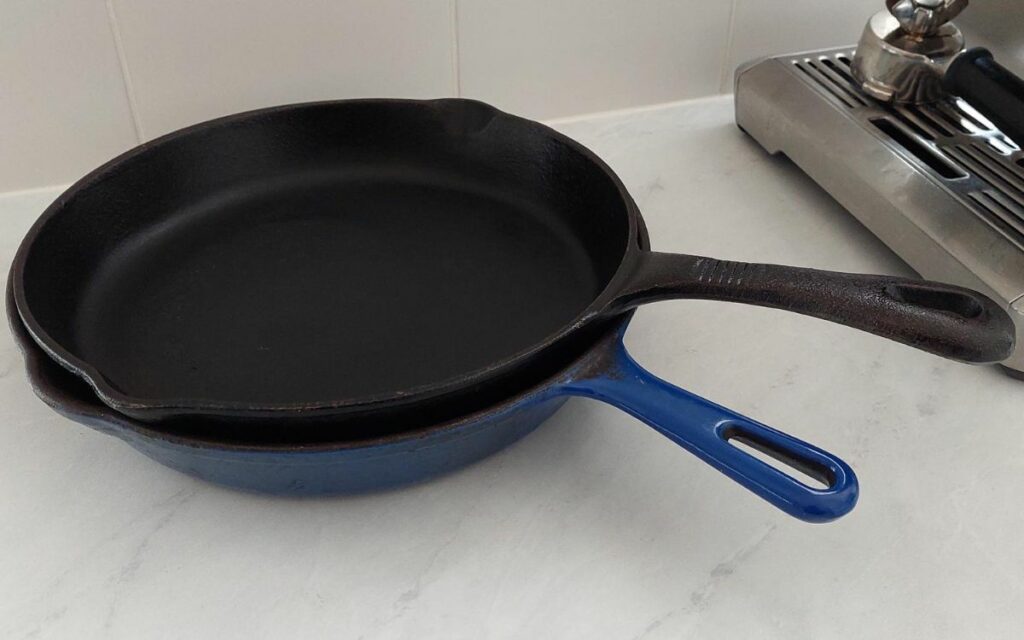
Learning cooking methods has been like unlocking a treasure trove of culinary possibilities. It’s not just about following recipes but mastering the art of various cooking methods. Exploring these techniques has broadened my skills, making ordinary meals extraordinary culinary experiences.
Blanching, boiling, poaching, and steaming. Roasting, baking, braising, stewing, broiling, and grilling. Sautéing, stir-frying, and searing. These cooking methods involve more than just following instructions. They include understanding how heat, time, and method interact. Each approach offers rewards, making cooking dynamic and engaging.
How to be a better cook — Exploring these cooking methods has opened a world of culinary creativity for me. This has allowed me to express myself through the dishes I create. It’s a journey of discovery where I continually experiment and refine my skills. Discovering the nuances that make each cooking method unique.
Mastering the control of heat is akin to wielding a powerful tool. That, when harnessed correctly, allows me to cook fantastic food. It’s not just about turning the stove or oven on; it’s about understanding temperature control and recognizing that different dishes have varying heat levels.
I want you to imagine for a minute. You’ve just spent some serious dollars on some well-marbled grass-fed ribeye steaks. You crank your cast-iron pan to a crazy temperature, you proceed to overcook them, and destroy those beautiful steaks. Heat control is your friend.
How to be a better cook — Heat control is about attuning to sights, sounds, and smells. It’s about recognizing the subtle cues. The shimmering of oil, the gentle simmer, the vigorous boil, and the smoking skillet. All these are subtle signs that tell you about heat control.
Remember this golden rule when pan-frying, searing, and sautéing: don’t overcrowd the pan. It’s a simple yet crucial guideline that can make all the difference between a mediocre dish and a culinary masterpiece. Overcrowding a pan is like trying to fit too many knives into a knife case; it doesn’t work.
In the world of cooking, this manifests as insufficient browning, which impacts flavor and texture. Moreover, overcrowding doesn’t just sabotage browning; it opens the door to steaming. As ingredients release moisture, a crowded pan traps that moisture, transforming your cooking environment into a steam room.
How to be a better cook — So, as you stand there with your ingredients, exercise restraint. Let each piece have its moment in the spotlight. This ensures proper browning and allows the flavors to develop and intensify. The result is a visually appealing dish with various textures and tastes.
Consider a roast chicken a culinary marvel with a spectrum of flavors locked within. The meat thermometer becomes indispensable. A few degrees can distinguish between a dry disappointment and a juicy triumph. It’s a journey to the heart of the roast, a quest to unveil the perfect temperature that transforms the humble roast chicken into a masterpiece.
The stakes are high, especially when dealing with the diva of the culinary world. The seared, juicy med-rare steak. A few moments too long on the heat, the steak transforms from a tender delicacy to a tough, tasteless piece of meat. The meat thermometer will be your compass, guiding you through the treacherous landscape of doneness.
How to be a better cook — Invest in a quality meat thermometer, and let it be your culinary compass. It’s not just about cooking meat; it’s about temperatures, ensuring each bite is a harmonious blend of safety and flavor.
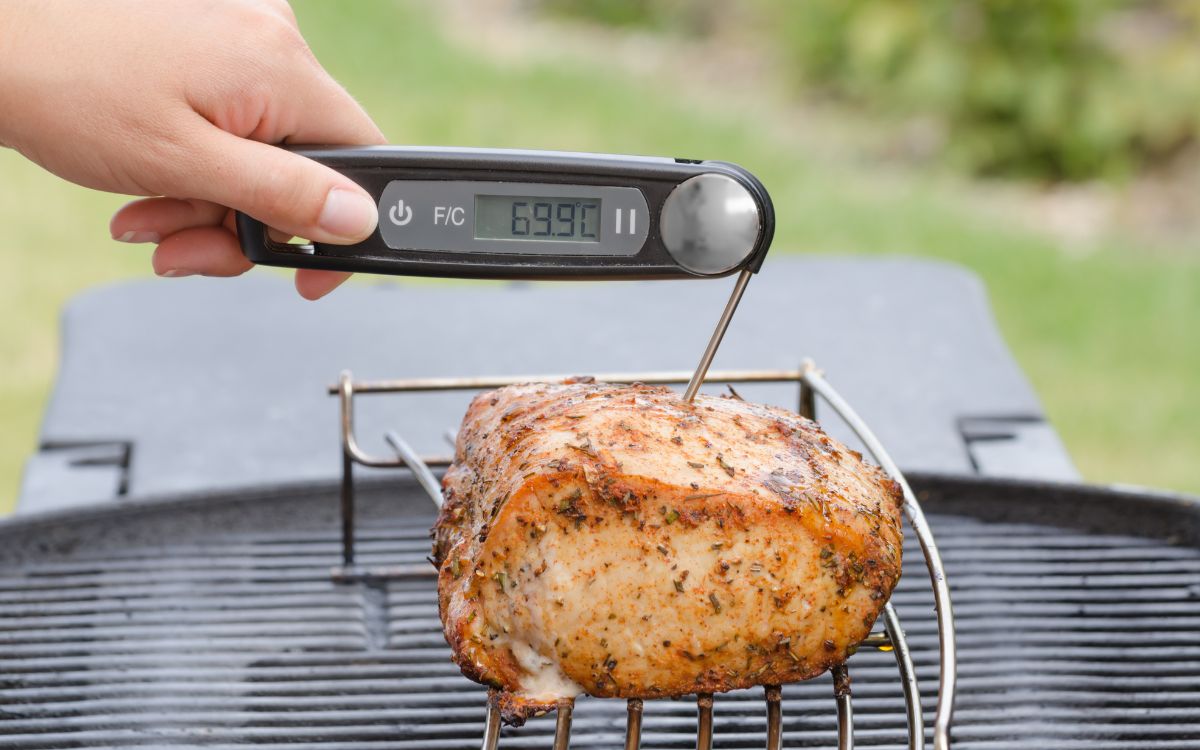
Sauces can make or break a dish. The flavors that sauces impart and complement dishes can transform them from mere sustenance to culinary masterpieces. Master the five basic mother sauces: espagnole, velouté, béchamel, tomato, and the famous hollandaise sauce.
These sauces aren’t just recipes but culinary foundations, the building blocks of a chef’s repertoire. Each sauce has its place in culinary history.
How to be a better cook — Master the basic sauces, and let them be your creative playground. It’s not just about what you cook but how you cook. With a repertoire of sauces at your fingertips, you become the master of your kitchen. Turn every meal into an unforgettable dining experience.
As a chef, plating and presentation are second nature. I understand that a well-presented dish is not just food on a plate. It’s a masterpiece that engages all the senses, where simple techniques transform meals into visually captivating experiences.
Sauces become my artistic strokes, adding flavor and visual intrigue. I drizzle, dot, or swipe sauces strategically with a deft hand, turning the plate into a canvas where each stroke enhances taste and aesthetics. Garnishes are the final flourishes of fresh herbs, edible flowers, or finely grated cheese They add pops of color, freshness, and texture, elevating the plate from a mere meal to a work of art.
How to be a better cook — Plating like a pro. It’s not just about making food look pretty; crafting an experience transcending taste alone. Every plate is a canvas in my kitchen, and every meal is an opportunity to tell a story about my cooking style and experiences.
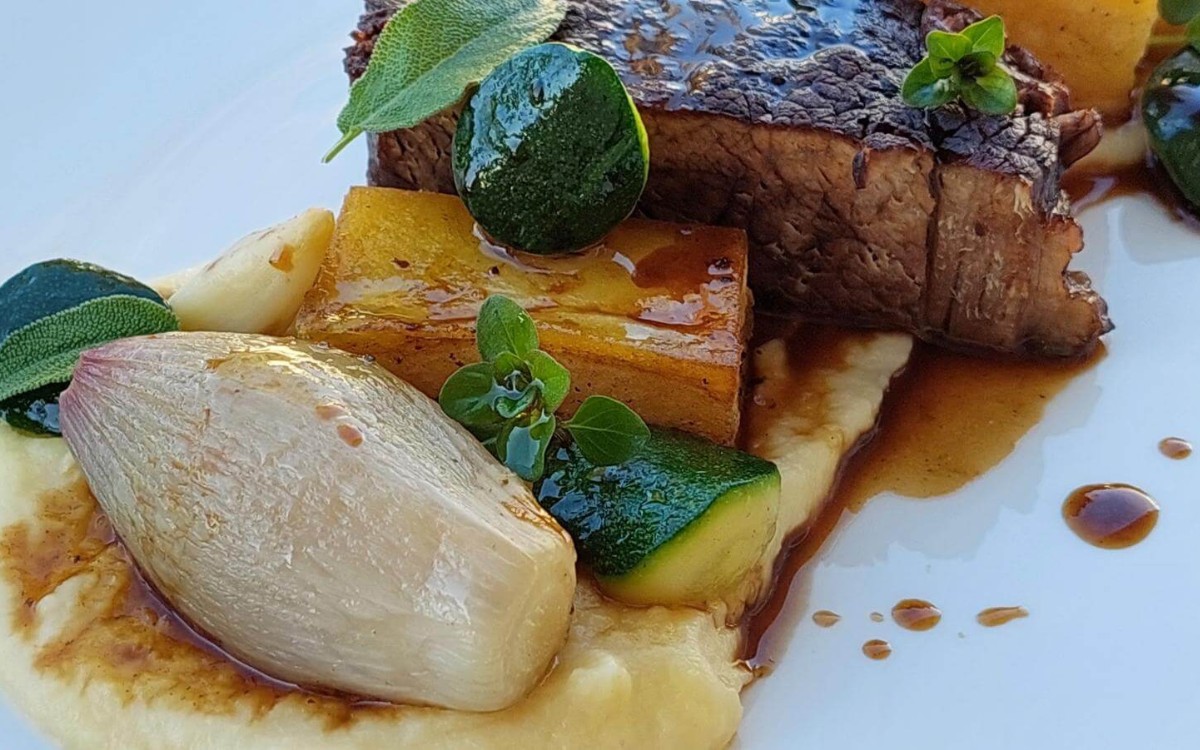
Watching online tutorials and exploring cooking blogs (like the one you’re on now) will give you ideas and inspiration to develop specific skills. The tutorials for exploring advanced cooking techniques will become your mentors. The pause button will become your ally, allowing you to dissect every step and replicate it in the kitchen.
I find inspiration unfolds in unexpected moments. A casual pancake flip or a vibrant sauce drizzle can spark a creative flame in my culinary imagination. It’s the intangible magic that watching professionals at work brings. The encouragement to step out of my comfort zone and infuse my dishes with innovation.
How to be a better cook — These are all catalysts for our culinary evolution. As you read, watch, absorb, and implement, your kitchen expands, and your skills deepen. It’s a celebration of the endless possibilities that cooking shows and blog tutorials unfold. You are transforming the kitchen into a stage for endless culinary exploration.
Embracing failure is not an admission of incompetence; it’s a declaration of courage. In the crucible of the kitchen, I’ve come to recognize that the most innovative recipes are often born from unexpected detours. Failure is the spark that ignites creativity, pushing me to question, adapt, and evolve.
Mistakes are the breadcrumbs leading to mastery. When a recipe crumbles, I don’t discard it; I gather and reconstruct the fragments. It’s a refinement process of discovering the delicate balance between ingredients, temperatures, and techniques. Failure is not the end; it’s the draft before the masterpiece.
Remember failure is the ultimate teacher, imparting lessons that no cookbook or tutorial can fully encapsulate. It teaches resilience, adaptability, and a profound understanding of the ingredients. In my kitchen, a setback is not a verdict; it’s an opportunity to pivot, innovate, and create something entirely new.
Cooking is a science and a skill that requires a deep understanding of both the technical and creative aspects. Cooking is also a matter of precise measurements and ratios.
For example, baking is particularly sensitive to accurate measurements and temperatures. A slight deviation in the amount of an ingredient or cooking degrees can result in a completely different outcome. So, to help you, here is a handy little unit converter tool for cooking without guesswork.